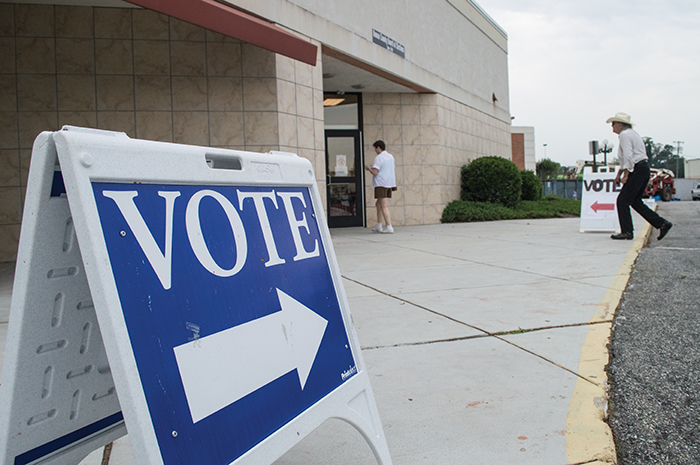John Hood: Swing voters crucial to Republicans this year
Published 10:07 pm Wednesday, September 26, 2018

- Voters walk into Rowan County's polling place during the first day of early voting for a special June primary in 2016.
RALEIGH — If North Carolina Republicans are to maintain solid control of both chamber of the General Assembly, they can’t just turn out the GOP base this fall. They also need undecided voters to break their way.
The latest Civitas Institute survey of likely North Carolina voters, conducted by Harper Polling, found a six-point lead for Democrats in the “generic ballot” test for state legislature. However, more than a fifth of likely voters said they were either planning to vote for a third-party candidate (6 percent) or were undecided (16 percent).
There is a significant swing vote for General Assembly races, in other words. To limit what one would normally expect to be Democratic gains in a midterm election with a Republican in the White House, GOP candidates need those voters to break disproportionately for them.
A close reading of the Civitas/Harper results shows that swing voters are closer to the Republicans than the Democrats on several key issues.
Take the subject of taxes, for example. A constitutional amendment on the statewide ballot this fall would cap the state’s income tax rate at 7 percent, down from the current constitutional gap of 10 percent. Most voters like the idea, but support among Republican-leaning voters (76 percent) is far higher than among Democratic-leaning ones (46 percent). Swing voters — I’m combining third-party and undecided voters for this category — are closer to the GOP position, at 63 percent support.
While Civitas didn’t in this survey ask about recent state-level tax cuts, it did ask about the federal tax reform enacted last year. While North Carolinians are split on the issue, 53 percent of swing voters like the tax bill. Only 7 percent of Democratic-leaning voters agree, along with 80 percent of Republican ones.
Another constitutional amendment would institute a photo-ID requirement to vote. An astounding 96 percent of Republican-leaning voters say they’ll vote for it, with 68 percent of Democratic voters against it. The swing vote is solidly (81 percent) with the GOP position here.
The Silent Sam controversy at the University of North Carolina at Chapel Hill could become an issue in some legislative races — a development that, in most cases, would hurt Democrats. More than three-quarters of swing voters disapproved of the statue’s toppling, with most saying they “strongly disapproved” (as did 86 percent of Republican voters). For their part, Democratic-leaning voters were split on the issue. The only group in the survey who approved of the protestors toppling Silent Sam, the self-described “very liberal” voters, are disproportionately located in districts that already have Democratic lawmakers.
Finally, while Democratic voters tend to be more pessimistic than optimistic about the direction of the country, and are even more gloomy about the state’s trajectory, swing voters are closer to the Republican position — more positive than negative about how things are going, particularly when it comes to North Carolina.
These findings suggest that GOP candidates running in competitive legislative districts should highlight North Carolina’s economic progress, emphasize their support of pro-growth policies such as tax relief, and talk about the importance of the rule of law. More often than not, swing voters will respond favorably to these messages.
The survey offers Democratic candidates some messaging advice, as well. Swing voters are closer to the Democrats than the Republicans on the adequacy of education funding in North Carolina, for example — which why Democratic campaigns so often focus on that issue.
As for the most talked-about factor in the 2018 election cycle, Donald Trump, neither side should assume that linking their campaign messages to the national debate about the president will necessarily push their legislative candidates over the finish line. In this poll, North Carolina swing voters had mixed views about Trump, with about as many approving as disapproving of the president.
It’s a “blue-moon” election in North Carolina, a midterm with no U.S. Senate race to juice turnout. Perhaps many swing voters won’t show up. But for those do, this poll offers some clues about what they may be seeking.
John Hood is chairman of the John Locke Foundation and appears on “NC SPIN,” broadcast statewide Fridays at 7:30 p.m. and Sundays at 12:30 p.m. on UNC-TV.

